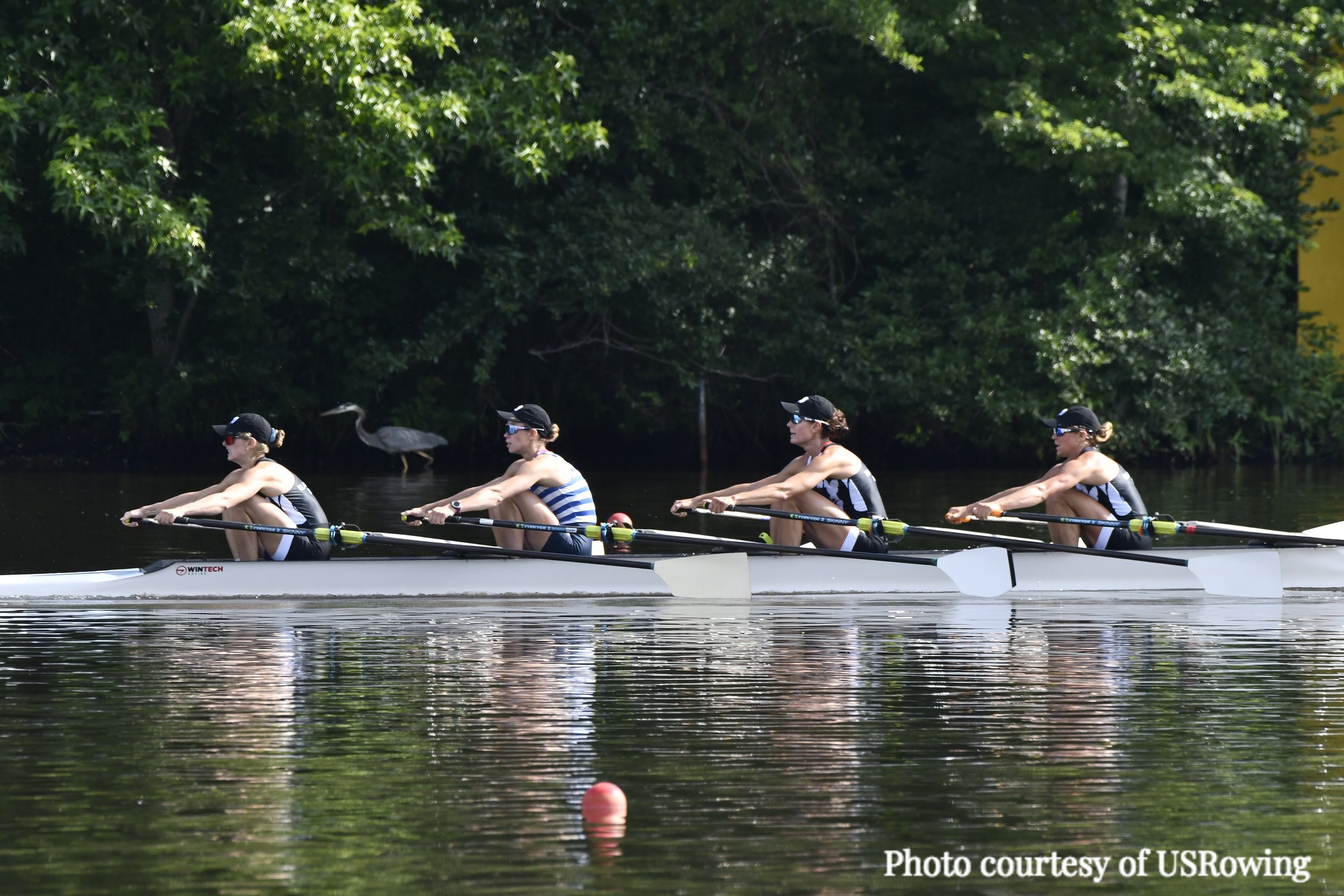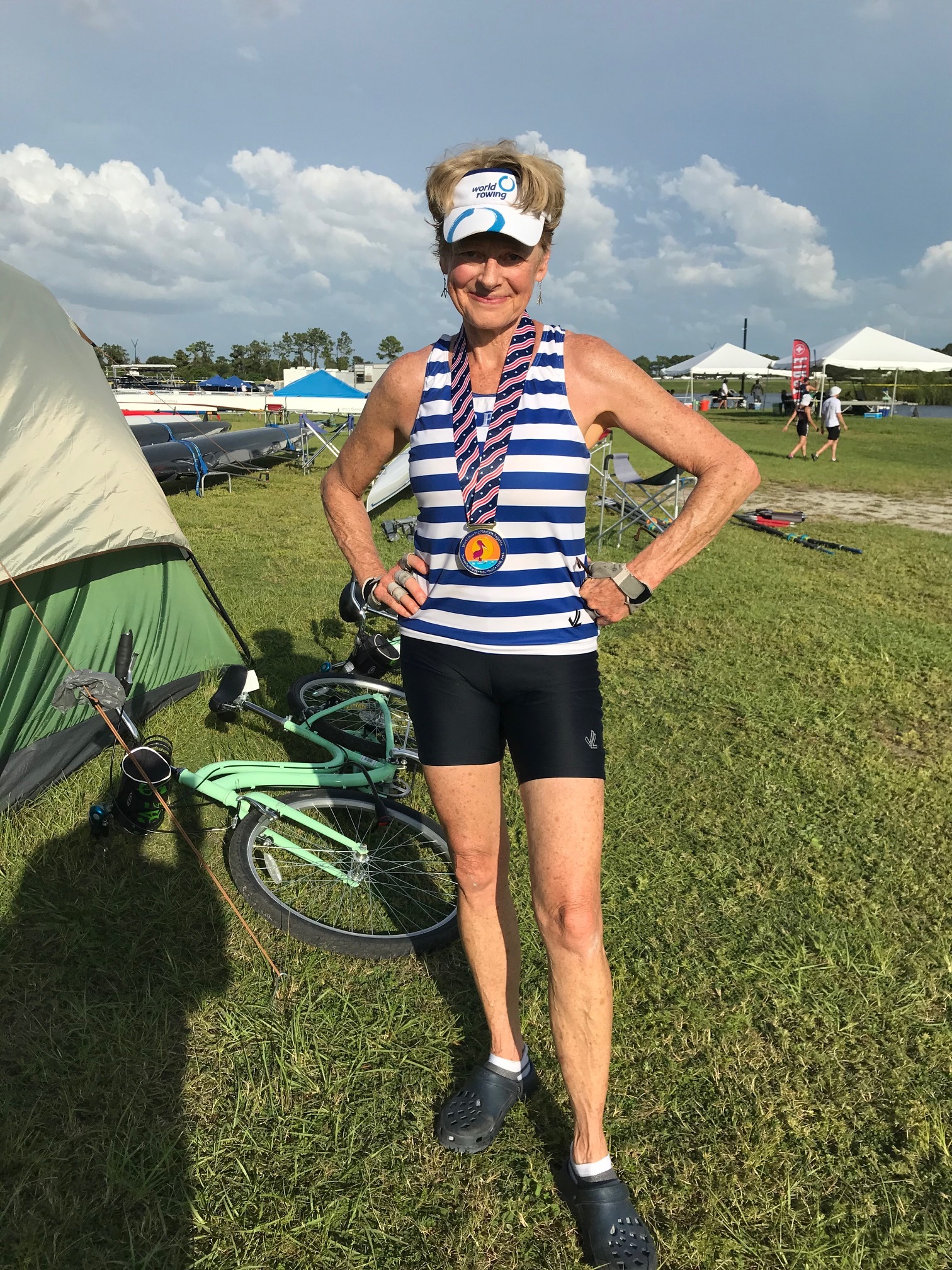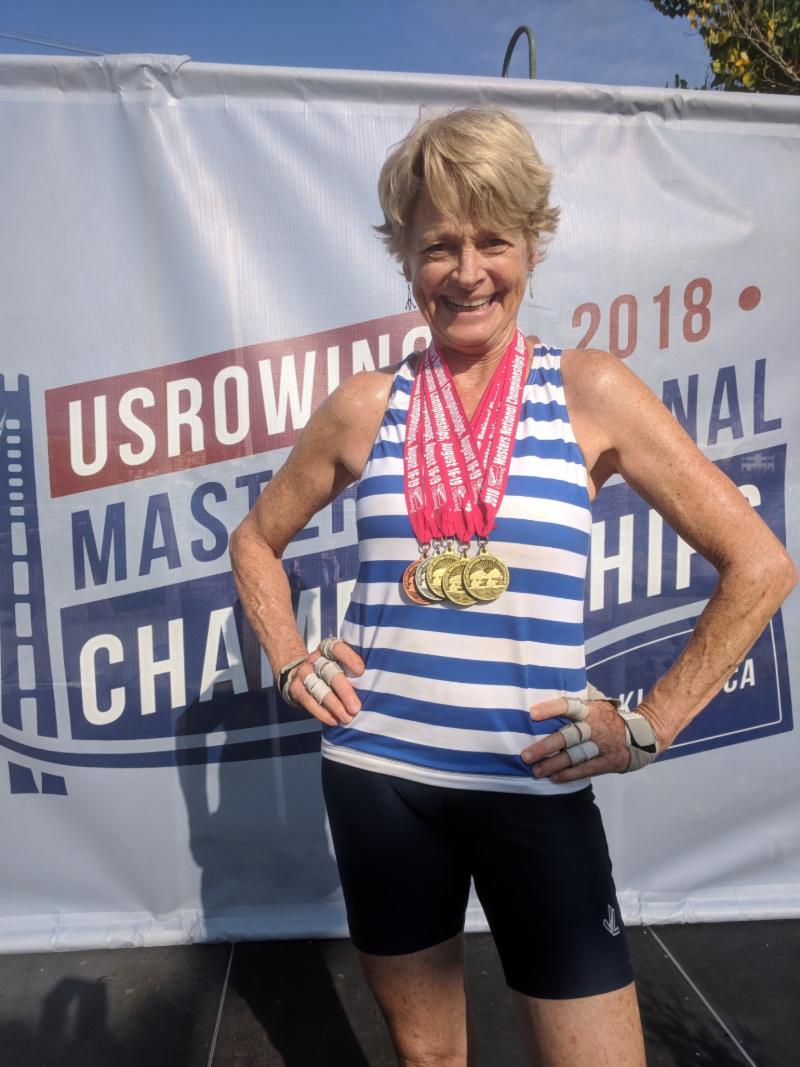Andy Sayles comes to Riverside most recently from upstream at Community Rowing, where he coaches the junior boys. He was also a summer member at Riverside with the men’s sweep team in 2011. Though he has been with the team since the spring, we have yet to formally issue his welcome interview. Welcome, Andy!
Interview with HPG Coach Mark Grinberg
Crusher Casey 2019
Q&A with the HPG coach: Evans Liolin
Coach Evans Liolin
In early September, the coaches committee announced that Evans Liolin would be joining the Riverside coaching staff, and taking up the reins of the HPG program. Evans brings an abundance of knowledge and experience to Riverside with him, having served as a coach for multiple collegiate programs which have seen successes on the IRA and Eastern Sprints stages. Evans also has significant experience leading multiple tiers of national team athletes, from junior to senior. He has even spent a few years here at Riverside too.
Annalise Routenberg: First, welcome back! What was your previous role at Riverside?
Evans Liolin: When I began coaching at Northeastern, Joe Wilhelm, who was coaching the lightweight development group here, invited me to come on as an assistant. So, in the beginning of my collegiate career, Riverside became a proving ground and coaching grad school. I got to work with some driven, skillful, fun guys and we raced a lot. A year or so later we had another fierce group of lights and then some very strong heavyweight men who went on to row in some really fast crews. The women here were firing on all cylinders, too. Around that time, I began coaching the Junior National Team along with the BB&N boys and lower boats at Belmont Hill. Buzz Congram, Joe, Chris Richards and Charley Butt were all early influences and mentors for me.
AR: Where did you learn to row?
EL: I learned to row at Nobles, in Dedham. Best thing that ever happened to me. Coincidentally, the ’36 Olympic Four, the “other” boys in the boat, were all Nobles grads, racing for Riverside.
AR: Did you go on to row in college?
EL: I raced for the University of New Hampshire, and then transferred to UChicago, which had a small club and no coach. I was training on my own, and some friends tricked me into coaching them. We had an ‘us against the world never say die’ mentality and had a lot of fun doing the hardest workouts we could create.
AR: So you are in a similar role now to your previous experiences here at Riverside?
EL: It’s a more focused role, with unambiguous goals. Women and men, open and light. Smaller group, higher aspirations.
AR: What are some goals you have for the HPG squad this coming season, year, and for the future?
EL: The immediate goal is to improve durability. We’ll train toward high performance, and then we’ll go as fast as we can. No limits. The Speed Order this fall will be a step along the way, a great opportunity for them to race some fast competition in another great environment. Frequently in our sport, you can find a diamond in the rough, and Riverside is a place where someone like that can thrive, take some risks alongside more seasoned athletes. My job is to clear a pathway so the entire group can pursue this with abandon, to guide an exhaustive effort that ultimately they own. The team culture helps to propel and support them. The long term HPG goals are very clear: to make National and Olympic Teams, and to produce medals for the U.S. We’ve opened the doors to see who’s out there, but we’ll raise the bar soon. The level of their work will determine whether the group size grows.
AR: Tell me about why you’re excited to be back at Riverside.
EL: Riverside is a really energetic place and the athletes here want to crank. Rowing hard is a common denominator in this club, but it’s the stories behind the people that are equally fascinating. When I was building the junior national team here in Boston, I was rigging for the club and remember some great conversations down in the shop with fantastic coaches, eventual national teamers and Olympians. Over the years, I’ve brought all of my collegiate coxswains here to learn the Head of the Charles course and to show off my old stomping grounds. I’ve wanted them to feel a part of the fabric of American rowing, and Riverside has played a significant role in that. These floorboards are drenched in champion sweat, and this group is going to add a lot more.
Riverside sculler Catherine Widgery wins her race at Masters Worlds!
Catherine Widgery
Riverside sculler Catherine Widgery competed at Masters Worlds in Sarasota, FL in the Women’s G-Single event. On Thursday, September 27, Widgery raced in the finals and won her race by open water with a time of 4:32.397. Congratulations Catherine!
Catherine will be racing at Head of the Charles Regatta on October 20 in the Women’s Veteran I/II and Senior Veteran I/II Singles.
All the medals!
Catherine Widgery
RBC Sculler Catherine Widgery had a fantastic week out in California at US Masters Nationals. She medaled in all five of her events.
“I was proud to be there representing Riverside,” she says. “So many people who spotted the famous striped jersey came up to talk to me about what a great club Riverside is, and how they loved being a member or launching from there.”
Widgery took 3rd in the women’s open F double; 2nd in the mixed G-K quad; and won the open F quad and women’s open G single with a time of 4:49:194.
She is excited to continue her training for Masters Worlds in September, and hopes to become the fastest female rower in the world aged 65+.
Q&A with the Men's Sweeps Head Coach, Tom Guncik
Tom Guncik
Tom Guncik is one of the latest additions to Riverside. The new men’s sweeps coach brings with him years of experience coaching collegiate rowers, and an exciting vision for the future of the men’s team. In her final job for the Communications Committee, Amanda Milad Cox checked in with Tom about rowing, coaching and how he came to Riverside.
How did you first get into rowing?
I learned to row as a freshman at Ohio State University. I had never heard of or seen rowing, but I followed my roommate to the crew meeting — thinking it was a fancy name for a debate team or stage crew — because they offered pizza and it might have been a way to make the largest university in the country feel smaller. Rowing that first year gave me a year’s worth of new athletic experiences along with supportive teammates, both of which helped me grow up and handle the stress of figuring out who I was.
And coaching?
I started coaching the freshmen while I was finishing my senior year at Ohio State, and got my first legitimate coaching job in 2008, a year after I graduated. At the time I was driving 30 minutes every day to a desk job in the suburbs of Columbus Ohio, and gas was $4.19 a gallon.
Then my former coach at Ohio State told me was he he was just named the head coach at Bates College, that the season started in a week and he was wondering if I was available. The chance to have a 10 month paid vacation in Maine seemed like a good alternative to what I was doing in Columbus.
10 months turned into three years at Bates as the men’s assistant coach and recruiting coordinator, and then I coached at George Washington University for six years.
As the new men’s sweeps coach, what are your goals for the team?
My short-term goal is to understand how the team and the club itself operate and to find areas where my experience can leave a positive impact. My long-term goal is to promote the team’s vision of providing a high quality, welcoming, and fun home for rowers who want to continue to train, develop boat skills and compete after college.
If you could coach any rower, dead or alive, who would it be?
When I lived in DC we weren’t allowed access to the boathouse one day because Michelle Obama took a sculling lesson. Coaching her would have been pretty cool.
How did you end up at Riverside?
After nine years of coaching in college, I wanted to see a different side of competitive rowing. I’d heard from a colleague about the position being open and had a meeting with Mike Farry and Graeme Calloway. I was intrigued by the character of the team and the competitive goals that the captains laid out.
How would you describe your rowing philosophy?
My philosophy is simple: when people I’ve coached look back on their time with the sport, I want them to be able to say that the experience created a positive development in some aspect of their lives.
New Members: Summer 2014
Bonnie Cao hails from the cow pastures of Carlisle, MA, the oft-forgotten little brother of Lexington and Concord. It may not lay claim to the “shot heard ‘round the world,” but be careful come hunting season. Nevertheless, great things have come for her since she first sat in the cox seat as a freshman at Bowdoin College. Since winning the Women’s Collegiate Four at the HOCR her senior year, she’s gone on to take a job as a Research Assistant at Brigham and Women’s Hospital where she concerns herself with bowel movements. At the boathouse she’s a Women’s Sweeps coxswain. Not to be outdone, Bonnie actually claims to have some hand-eye coordination, as she also played squash at Bowdoin, and is always up for delivering a good butt-kicking to anyone up for the challenge.
Aymee Suarez comes by way of the dirty Jerz via Lehigh University and a stint with Penn AC. She’s earning her Masters in Sport and Performance Psychology (mental note: don’t talk to Aymee about the last 500). She also brings great perseverance to Women’s Sweeps, as she won a silver at Dad Vails her novice year after only 4 months in an 8+, having spent the previous 10 months recovering from a traumatic brain injury. Fair to say, this girl knows a thing or two about how our brains work. And she also knows a thing or two about food, having eaten up to 5000 calories a day as an undergrad rower. “Girl can eat,” she said. Uhhh, yup.
Jason Healy is another new member who seems oddly obsessed with cognition, although he didn’t really elaborate about what exactly an “art therapist” does. The Cambridge native who learned to scull at CRI last year is not only an art therapist, he’s downright artsy fartsy. Want proof? Here’s his favorite rowing moment: “Rowing up by CRI under the full moon with herons flying by and sound of the oars.” If you want to join him down by the banks of the Charles for some shenanigans, he’ll even offer to keep you warm with the blanket he wove.
Jerry Yu is a Northeastern student who has some serious identity issues. He was born in Taipei, Taiwan, but raised in Beijing. We think he thinks he’s from both, but we’re still investigating. The Marketing & Operations Associate… wait I thought he was a student? Nevermind. Jerry decided to join Riverside after getting pumped up watching the Crusher Casey race. He just started throwing money at Kit, and the rest is history. He’s web savvy, and hopes to help the club with IT, communications and social media. This Renaissance man has also been playing four different string instruments for over 10 years. Just make up your mind already, Jerry.
Meghan Brundage is a lovely biomedical researcher, originally from Hampton, VA (which Google maps will tell you is awfully close to a NASA research center), who has been stuck in Cincinnati for about six years while finishing her PhD. As Iggy Azalea might say, she’s so fancy, she already knows… Meghan also happens to be a pretty fine rower, having picked it up in high school, continued for a time at Cornell and raced with the Cincinnati Rowing Club for whom she snagged a bronze in the Women’s Masters 2x at the 2012 HOCR. SO FANCY! Meghan is rocking the 1x these days, and would like you to know that she’s actually a cyborg–she’s got 8 pieces of metal in her body. Not going through security with you, Meggy.
Sam Hausmann comes to us from the great white north… or whatever it is you call Buffalo. The Great White Buffalo? No, that’s wrong. Anyway, he’s a Northeastern student, having rowed sweep for four years in high school, who’s now primarily sculling. One time he and his best buddies competed in a seven day, 385 mile row down the Erie Canal in a 4+. Sounds… fun? Clearly, Sam seems to think they breed them tougher up north, as April on the Charles was the earliest he’d ever been on the water by almost a month. Sounds like winter training in Buffalo was also… fun? We think Sam enjoys cruel and unusual punishment.
Next up, Jeff Alex, of Quincy, MA. He’s a designer/contractor. Of what? Don’t ask me! He says words like “ars” instead of a**. He rowed four years in college, then began sculling on his own and has been self-proclaimed, “row crazy,” ever since. He’s so crazy, that when he tried to coach college rowing he couldn’t do it, because the rowers weren’t intense enough for him. Take it easy, Jeff, you’re being a hard “ars.” Nevertheless, he loves, “the feeling of the single under me on the rare moments when I have a good stroke!” In the past, he’s volunteered countless hours at previous clubs and was once named an Honorary Astronaut by NASA. Was it for your intensity, Jeff?
Dr. Kevin Sullivan wakes up screaming in the middle of the night after nightmares about flipping the 1x. “There are two types of scullers in the world,” he says. “Those that have flipped and those that will. I am still in the latter group.” We all know how this story ends. Like Jaws claiming a naive swimmer at night, it’s not a matter of if, but when the Charles gobbles up our poor doctor. On a lighter note, Kevin likes to sweep and scull–he learned the craft in Wilmette, IL, during high school, and has been sitting his butt in finely crafted shells ever since (and had a brief coaching stint with Emory). He loves the rippling sound of an 8+ on a still morning, “as all the bodies are moving in synchrony.” And he’ll really love swimming to shore on that choppy morning when the single finally wins this age-old battle.
Wearing RBC Blue Stripes Can Lead to Stars and Stripe
By Ed Moran
Lauren Schmetterling was clear about her goals when she met with U.S. women’s national team coach, Tom Terhaar.
She told him she wanted to row on the national team and was intent on making it. She had the power and the desire, but Terhaar thought she wasn’t quite ready. She needed work on her technique.
So Terhaar’s suggestion was to move to Boston, join the Riverside Boat Club and start working with head coach Tom Keister. “I’ve made that suggestion to a number of women,” Terhaar said last week. “Tom’s been great for us. They are not afraid to do the work. They erg and they get fit and they get better. It’s a lot easier to fit a new athlete in when they are fit. And they get fit at Riverside.”
Schmetterling followed the advice and trained and developed at Riverside for 22 months, earning her an invitation to the Princeton Training Center in November 2012
For Schmetterling, who won a gold medal at last summer’s world championships in the eight, and a number of notable athletes who row for, or have rowed for, the U.S. women’s team, Riverside was a place that helped make their international careers possible.
Some of the athletes include Olympians Natalie Dell, and Meghan Musnicki, Emily Huelskamp, who won gold in the four last summer in South Korea and four-time national team lightweight Hillary Saeger, who has two world championship bronze medals and one silver rowing in the lightweight women’s quad.
Last week, Saeger was again in the lightweight women’s quad that won senior trials along with the RBC men’s lightweight quad of Andrew Neils, Peter Schmidt, Jacob Georgeson and Kyle Lafferty. They won their senior trials event and now all five RBC athletes will race at the 2014 World Rowing Championships in Amsterdam, The Netherlands in August.
In addition, Schmetterling, who won another gold medal in the eight at the recent World Cup II at Lake Aiguebelette in France, and Huelskamp are in the mix for the coming world championships.
Talk to any of the women on the U.S. squad who have rowed at RBC, and they will tell say without question that their time at RBC is a big reason they have gotten to where they are.
“Rowing there was absolutely amazing,” Schmetterling said. “Tom Keister will do anything to make sure his athletes succeed and he will take them as far as they want to go. He would stay out with me on the water in my single until he was sure that I was accomplishing what he wanted me to accomplish.”
Musnicki, who also won another international gold on Lake Aiguebelette, remembers her time at RBC as life changing.
“Training at Riverside taught me many different things,” Musnicki said. “For starters, it forced me to be more independent and reinforced the idea that you are responsible for yourself. Being a part of a club means that you have to make sure your boat gets to the race, you have to make sure your oars get to the race, and you have to know when your race is.”
She said that was not her experience rowing in college where she would get on a bus, be driven to the race, get off the bus and the equipment would “magically appear.” But she also said that while she had to develop an independent mindset, there was plenty of support at RBC.
“It’s like joining a huge family. If you need something or don’t know something, or want help with something, I knew all I had to do was send out a blast to the RBC list serve and within ten minutes my inbox would be flooded with responses.”
And, like Schmetterling, Musnicki credits the coaching she got at the club.
“As far as the coaching staff goes, I feel incredibly lucky to have trained under Tom Keister. Day in and day out he provided me with anything and everything I could need to attempt to advance my skills in small boats.
“I came to him pretty green in the small boat department so he definitely had his work cut out for him, but he kept at it and if it weren’t for him I definitely would not have gotten the invitation to go try out and train at the Princeton Training Center.
“He kicked my butt into shape, getting me physically ready for the training load at the center, and on top of that seemed undeterred in his attempts to round out some of the many rough edges I had in the single and double,” she said.
“There is no doubt in my mind that my journey to the national team began at RBC. I will forever be thankful for my time there and will always cherish my stripes!”
Alumni Spotlight: Will Melcher
From Five-Year-Old Cox’n to Jim Hanley’s 2x Partner
How did you get started with rowing?
I started substitute coxing at age five for my father’s first crews at BB&N in 1952. It took a while for it to take, as I fancied myself as a baseball player. I started rowing in the ninth grade, and never looked back.
How did you end up at Riverside?
RBC was a mystery to me growing up. I never saw anybody rowing from there. I came to RBC after my first season at Weld, which I launched from for my first race in 1980 against Jim Hanley, Rufus Perkins, and Graham King. By then I had learned that RBC was the original rowing club of the Riverside Press (the publisher for some of the traditional literature for my high school English reading classes). The club seemed free of pretense, as its social life was on the water, and there were members as diverse as “Crusher” Casey, the pro-wrestler and champion sculler, and Mr. RBC, Bob Cutler, the Olympian.
While at Riverside, you played a large role in bringing the club through the transition to independence from Northeastern. How did you get involved? What was the outcome?
I became an RBC member in the spring of 1981 and was appointed by President Rufus Perkins at the same meeting to lead the boathouse renovations. We started by scraping the peeling paint in the (now) women’s locker room (where I first met Lynn and Charley Osborn) and the usual host of maintenance issues that require work to this day.
I was elected captain the next year over Ted Van Dusen; put together the first RBC Guidebook to replace the handwritten notes tacked around the logbook; worked with the first coach, Doug Clark, and President Jim Hanley to get the Committee system going; and was a trustee for a number of years before moving to New Hampshire to Amoskeag RC in 1998.
Tell us about a memorable Riverside experience.
During the Q&A session following my speech for trustee, in which I supported raising the dues from $50 to $75, I answered a member’s question about the financial value of RBC to me: “The additional dues will cost no more than a cup of coffee a day, but its value? I don’t know….$300, $500…$10,000!” which brought hoots from the crowd, especially since I couldn’t afford any bit of it. Somehow they overlooked it, and I won in a squeaker. There was also a candidate running on a platform of “condo racks,” so one didn’t even need to row your boat. That’s what we were up against.
What have you been up to recently?
I am president of Independence RC in Nashua, which we are pulling out of hat. I joined five years ago during its near total collapse. There were only five rowers, none of whom raced and had no coaching. We are now at 21 members and have competitive coaching, and eight adults competing around New England. We added a youth membership category last month that is fielding four scullers and sweepers. Look for the oars with the geometrically abstracted blue mountain on a yellow-dawn background.
Tell us something we do not know about you.
I am very pleased to be part of RBC as a supporting member and rowing in the 2x again with Jim Hanley as we did for 13 years back in the day. We won the Masters 2x at the Canadian Henley in 1991 as underdogs in a blistering race by 10ths of a second. My eyes were closed while waiting for the results, which Jim spotted first and made that whole long trip quite worthwhile. The only other international racing I did was at Henley, England in 1969 in my college 8, where we finished second to the Dutch national team in the finals of the Ladies’ Plate.






















